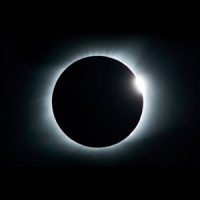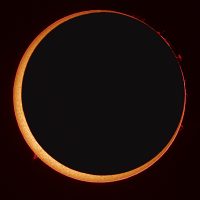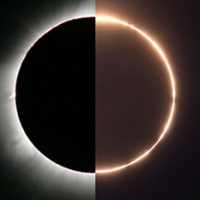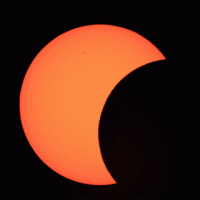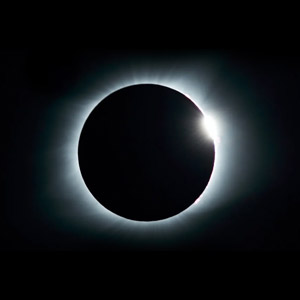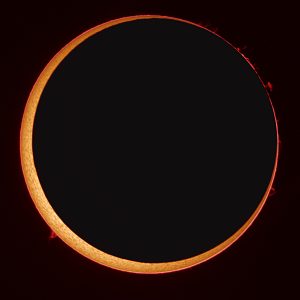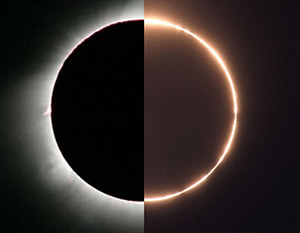Solar Eclipses
A solar eclipse occurs when the Moon passes between the Sun & the Earth. There are 4 types: total, annular, hybrid and partial.
🌞 🌑 🌎
Photo Credit: Rick Fienberg / TravelQuest International / Wilderness Travel
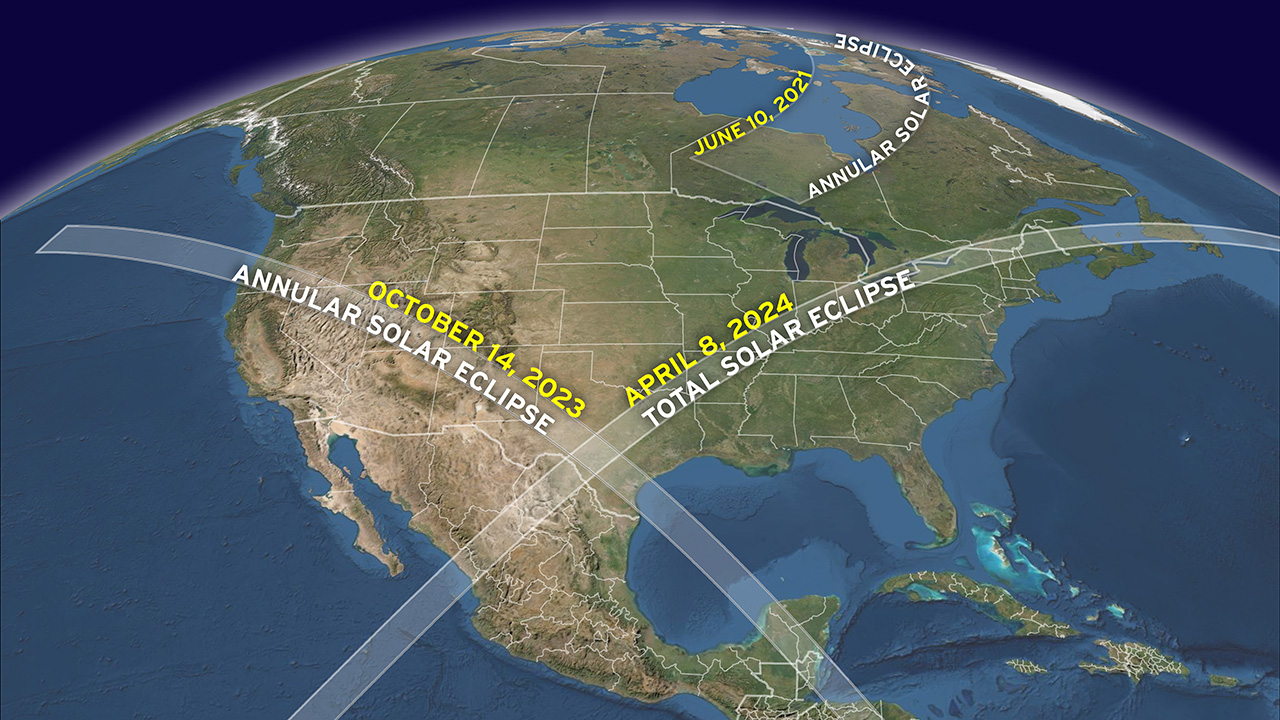
Did you see the
solar eclipse double header?
If not, get ready to travel or wait to see another set in 2044 & 2045!
🌞 🌑 🌎
Solar eclipses happen at a new moon.
The moon is between the sun & the earth.
The sun is blocked & gets darker.
They are visible in the daytime.
You need eye protection to safely view!
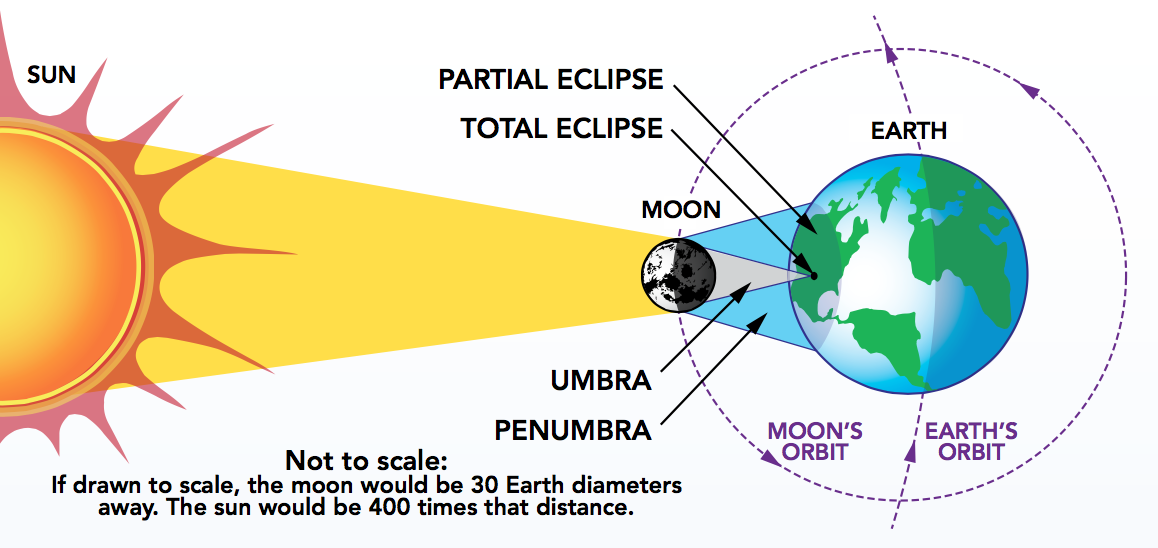
Credit: NASA
Solar eclipses only happen 1-2 times a year, mostly in different locations. On average, it’s 375 years between viewing in the same location. See one if you can!
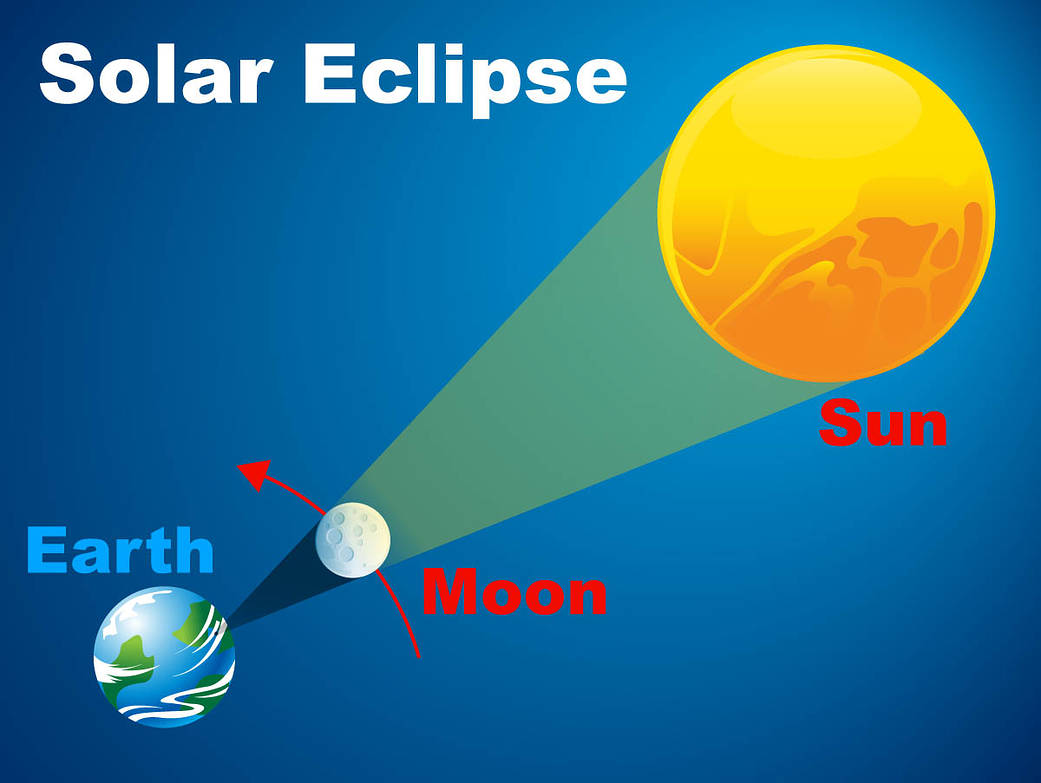

CREDIT: NASA, Music Provided By Killer Tracks: “Bring Me Up” – Kampe Wikstrom
CREDIT: Don Davis under contract to Rice University, paid for by the NASA’s Heliophysics Education Consortium, and are copyright Rice University
Total Solar Eclipses
Occur when the Sun, Moon, and Earth are aligned directly.
People in the path of a total solar eclipse can see the Sun’s corona, the outer atmosphere, which is otherwise usually obscured by the bright face of the Sun.
Annular Solar Eclipses
Occur when the moon is farthest from Earth.
Because the moon is farther away from Earth, it seems smaller and does not block the entire view of the sun. When the Moon comes just shy of completely blocking out the Sun a bright ring or annulus is visible. This is a special kind of partial eclipse, an annular eclipse.
Hybrid Solar Eclipses
Also called annular/total eclipse.
At certain points on the surface of Earth, it appears as a total eclipse, whereas at other points it appears as annular.
Partial Solar Eclipses
The moon appears to block part—but not all—of the sun’s disk (photosphere).
The Sun, Moon and Earth are not in a straight line. It appears as if the Moon took a bite out of the Sun.
Photo Credit: (NASA/Bill Ingalls)

Annular Eclipse – Japan – May 21, 2012 CREDIT: George Olcott
FEATURED SOLAR ECLIPSES
Learn more about some of the solar eclipses from the last few years and two upcoming ones that will be visible in the United States. View details for a recap of videos, photos, maps, and other details to start to experience the excitement of eclipses. Each one is unique!
| Date | Type [1] | Geographic Region of Eclipse Visibility [2] | |
| 2016 | |||
| 2016 Mar 8-9 | Total Solar | [Total: Micronesia] | Details |
| 2017 | |||
| 2017 Aug 21 | Total Solar | [Total: United States] | Details |
| 2019 | |||
| 2019 Jul 2 | Total Solar | [Total: Chile & Argentina] | Details |
| 2020 | |||
| 2020 Dec 14 | Total Solar | [Total: Chile & Argentina] | Details |
| 2021 | |||
| 2021 Jun 10 | Annular Solar | n North America, Europe, Asia [Annular: n Canada, Greenland, Russia] |
Details |
| 2021 Dec 04 | Total Solar | Antarctica, South Africa, s Atlantic [Total: Antarctica] |
Details |
| 2021 | |||
| 2021 Dec 04 | Total Solar | Antarctica, South Africa, s Atlantic [Total: Antarctica] | Details |
| 2023 | |||
| 2023 Apr 20 | Hybrid Solar | se Asia, East Indies, Australia, Philippines, New Zealand [Hybrid: Indonesia, Australia, Papua New Guinea] | Details |
| 2023 Oct 14 | Annular Solar | North America, Central America, South America [Annular: w US, Central America, Colombia, Brazil] | Details |
| 2024 | |||
| 2024 Apr 08 | Total Solar | North America, Central America [Total: Mexico, c US, e Canada] | Details |


